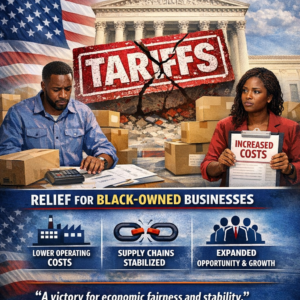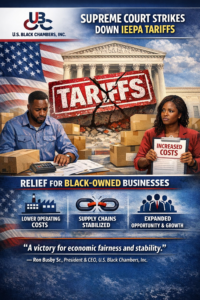By Habari Entertainment Staff
Charlie Kirk, the conservative firebrand and founder of Turning Point USA, was fatally shot at just 31 years old. His killing has not only shocked the political world but also reignited fierce debate over his legacy — a legacy marked by polarizing rhetoric, accusations of racism, and divisive culture-war battles.
The reactions have been swift and starkly divided. On the right, Kirk is being mourned as a Christian leader and a political martyr. On the left, critics argue his death cannot erase the damage his words inflicted, pointing to his most controversial statements about George Floyd, Martin Luther King Jr., and systemic racism. The controversy over his words and the response to his killing reflect America’s fractured political soul.
Kirk’s Most Controversial Statements
Kirk built his brand on provocation, but some of his remarks crossed into openly racist or inflammatory territory. Here are some of the most cited examples:
- On George Floyd: Kirk once called Floyd a “scumbag” during a 2021 campus tour, arguing Floyd was “unworthy of the attention” he received after his murder. (CBS Minnesota)
- On DEI and Black Professionals: In January 2024, he remarked, “If I see a Black pilot, I’m going to be like, ‘Boy, I hope he’s qualified,’” framing diversity programs as a threat to safety and merit. (The Guardian)
- On Black Communities: Kirk suggested that “prowling Blacks go around for fun to go target white people … it’s happening more and more,” reinforcing dangerous racial stereotypes. (The Guardian)
- On Civil Rights and MLK: He repeatedly attacked the Civil Rights Act of 1964, calling it a “huge mistake” that created a permanent DEI bureaucracy. Kirk also dismissed Martin Luther King Jr. as “awful … not a good person” and “a mythological anti-racist creation of the 1960s.” (Wikipedia/various reports)
- On White Privilege: He described it as a “myth” and even a “racist idea,” insisting systemic racism does not exist.
- On Immigration and Race: Kirk openly embraced the so-called “Great Replacement” conspiracy theory, saying, “It’s not a theory, it’s a reality.”
These statements, documented across speeches and media appearances, formed the basis of why many critics view Kirk not merely as a conservative voice but as someone who helped normalize racist talking points in mainstream politics.
Selective Outrage and Political Mourning
After his killing, former President Donald Trump ordered flags lowered in Kirk’s honor, and Republicans in Congress held a moment of silence. Critics noted the hypocrisy: Melissa Horton, an actual elected official, received no such honors from the same leaders.
The double standard stung. For years, conservatives laughed at or dismissed the deaths of Black Americans like Trayvon Martin and Michael Brown. Many of those same voices are now demanding solemnity and reverence for Kirk, even as they continue to minimize the systemic violence Black communities endure.
Meanwhile, Democrats, including Barack Obama, condemned the killing despite Kirk’s disdain for them. The message was clear: violence is unacceptable, no matter who the target is.
Online Fallout and Doxxing Campaigns
The internet became frenzied after Kirk’s assassination. Some posts mocked or even celebrated his death. Conservative influencers like Laura Loomer quickly vowed to expose those users.
A website titled “Expose Charlie’s Murderers” claimed it received 30,000 submissions of posts celebrating Kirk’s death, promising to create a searchable database of users’ names, locations, and jobs. Loomer declared on X: “I will be spending my night making everyone I find online who celebrates his death famous.”
This tactic — doxxing ordinary people for tasteless posts — underscores the dangerous state of online politics. It is no longer just leaders under the microscope but everyday citizens whose digital traces can be weaponized.
Violence, Data, and Double Standards
Statistics back up what critics argue: right-wing extremism accounts for the majority of political violence in the U.S. Reports from the FBI, DHS, and the Anti-Defamation League show that far-right actors are responsible for a disproportionate share of extremist killings over the past decade.
Yet after Kirk’s death, Trump and GOP leaders instantly blamed the left — stoking the same fears and divisions that have fueled violence in the past. Their selective outrage reveals the underlying hypocrisy: violence is condemned when the victim is one of theirs, but minimized, mocked, or excused when victims are Black, progressive, or marginalized.
A Legacy of Rhetoric — and Its Consequences
Kirk often attacked single-parent Black households as the “scourge of America,” ignoring the systemic barriers those families face. He dismissed civil rights as unnecessary, insisted systemic racism doesn’t exist, and used racialized blame to explain everything from mass shootings to crime.
His critics argue this rhetoric dehumanized communities of color and contributed to the very atmosphere of hostility America now confronts. His defenders claim it was simply free speech, uncomfortable but necessary truths.
Conclusion: Violence Isn’t the Answer
Charlie Kirk’s death was a tragedy. No life should be taken for political speech. But the aftermath — the mourning, the hypocrisy, the doxxing campaigns, and the unwillingness to reckon with his rhetoric — reveals how dangerously fractured America has become.
If politicians cannot temper their language and reject dehumanization on all sides, violence will continue to feel inevitable. The lesson here is not just about Kirk’s killing — it’s about the toxic climate he both thrived in and helped create.
Until leaders, left and right, decide that rhetoric matters as much as actions, America’s divisions will only deepen.











More Stories
One Dead, Two Injured in Shooting Near ASU Campus
ICC Judges amend the Regulations of the Court to regulate motions for acquittal
U.S. Black Chambers, Inc. Statement on Supreme Court Decision Invalidating Tariffs Imposed Under IEEPA